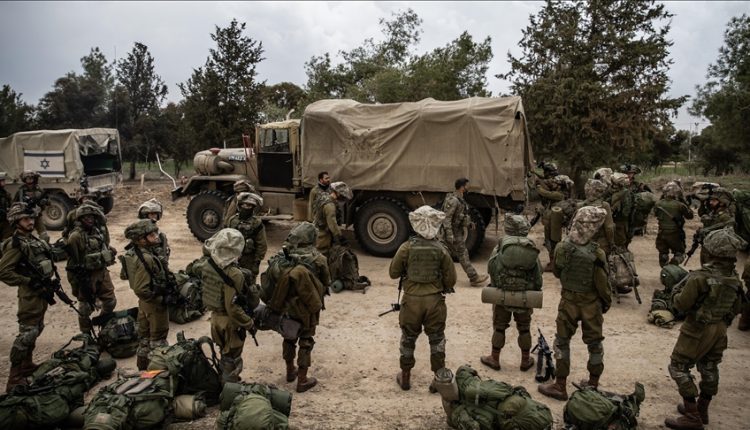OCCUPIED PALESTINE, Sept. 14 (YPA) – As developments unfold in the Gaza war, the Israeli occupation authorities are facing a growing trend of military insubordination, with reserve soldiers and their mothers refusing to return to military service in the Gaza Strip.
This movement is reminiscent of a similar one that played a pivotal role in prompting the Israeli occupation army to end its occupation of southern Lebanon in 2000.
Escalating Movement Signals Internal Divisions
The number of groups publicly announcing their refusal to serve is on the rise. One group, “Soldiers for the Hostages,” includes more than 360 soldiers, while another, “Parents of Soldiers Crying Enough,” claims to have around 1,000 mothers, according to the Associated Press.
Mothers’ statements reflect growing anger and a sense of futility. Yifat Gadot, for instance, says her 22-year-old son described feeling like a “target” in Gaza. She added, “I told him that we, the mothers, will do everything we can to get you out of this political war.” Likewise, Nurit Filsenthal-Berger expressed her fears for her enlisted son, stating, “I can’t stop thinking about the possibility of him getting injured in a way that prevents him from returning to his life.”
Reserve soldiers are also voicing their exhaustion and increasing frustration after repeated tours of duty in Gaza. Avshalom Zohar Sal, a soldier and paramedic, described the troops as “exhausted and no longer knowing why they are fighting.” He noted that some of his comrades have become less focused, making them more vulnerable to Hamas fighters’ attacks.
Mounting Anger and Long-Term Consequences
Refusing service can lead to imprisonment, with three soldiers having already served short sentences this year. However, the statements of those refusing reflect growing anger toward the Benjamin Netanyahu government, which opponents accuse of prolonging the war for political gain at the expense of internal Israeli interests and the hostages’ lives.
Max Kriech, a member of “Soldiers for the Hostages,” stated that “Netanyahu’s continuous war endangers our captives, tears Israeli society apart, and simultaneously kills, maims, and starves an entire population in Gaza.”
This movement coincides with widespread domestic and international protests against Netanyahu. Analysts and former security officials believe that recent military operations may not achieve any tangible results. It also aligns with increasing international criticism of the Israeli occupation due to the humanitarian catastrophe caused by the war on Gaza.
According to the Gaza Ministry of Health, more than 64,000 Palestinians have been killed since the start of the ground invasion, nearly half of whom are women and children.
In an analysis by the International Crisis Group, analyst Merav Zonszein warns that pushing soldiers to fight amid internal political division could negatively affect the Israeli army’s long-term capabilities. She believes that what is happening today is an extension of a deeper crisis rooted in the divisions sparked by the 2023 judicial overhaul plan, which weakened the Israeli occupation authorities before the October 7th attack.
YPA


